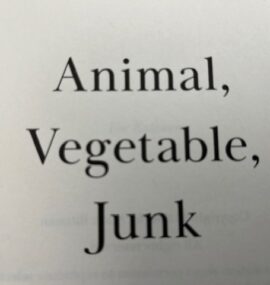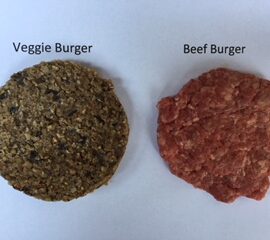Our obesogenic environment We Americans live in an obesogenic environment. Omnipresent ultra-processed food promotes overeating. In his latest provocative book, Animal, Vegetable, Junk, author Mark Bitmann chronicles the history of food and explains that the food industry created foods so tasty and pleasurable that we eat more than we need. As products of our evolution,…
more
Animal, Vegetable, Junk






